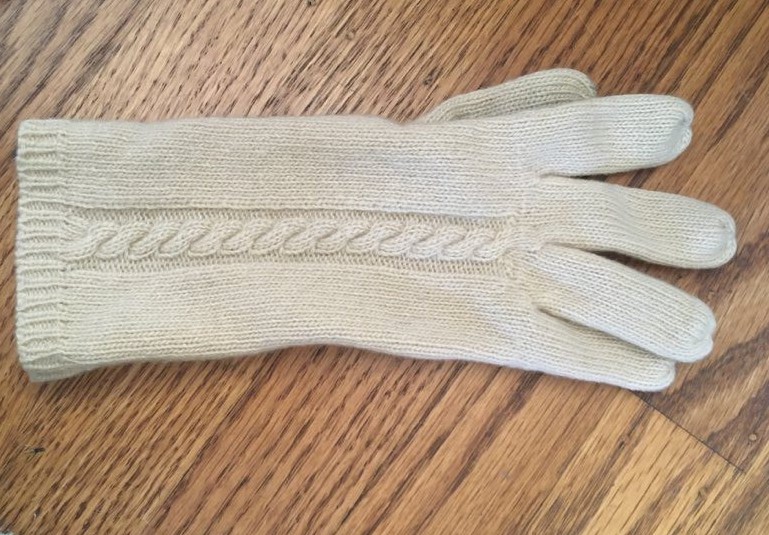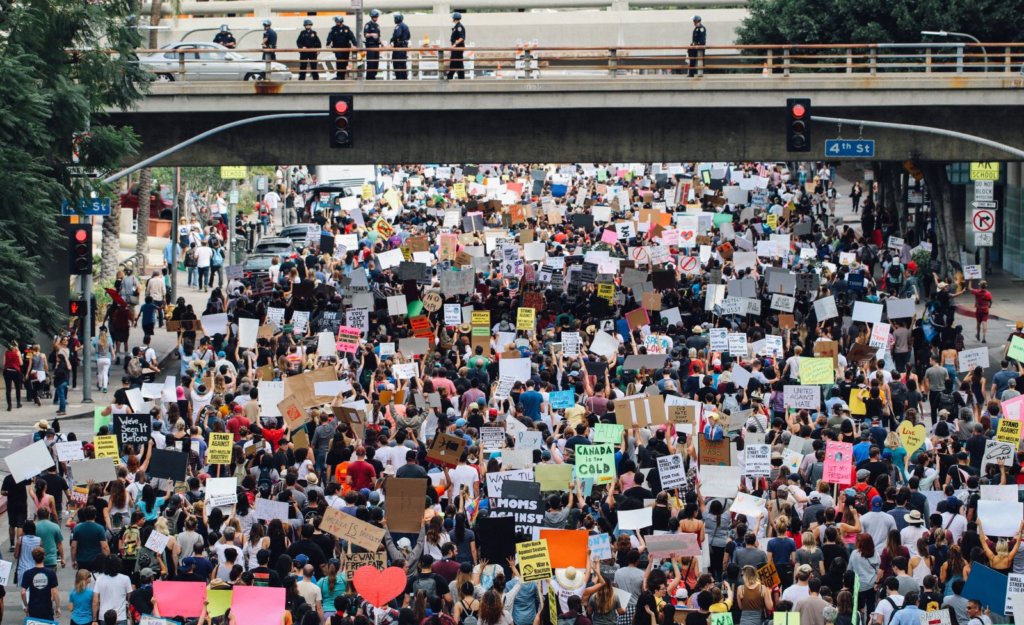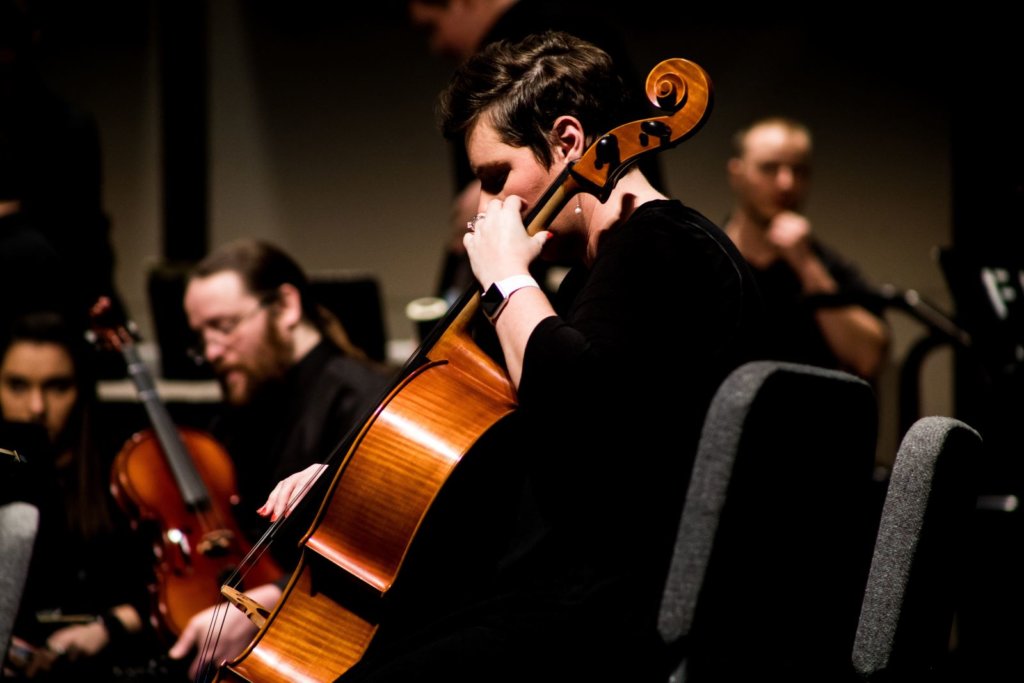This weekend as I ran various errands, it occurred to me how normal it feels to wear a mask and stand six feet away from everyone. If someone closes the distance between us, I take a step back, almost automatically. I’m reminded how we human beings can become accustomed to almost anything. That’s not always to our benefit of course – there are some things that are harmful and it behooves us not to become accustomed to them, but nonetheless, adaptability and resilience are our strengths.
We see this in nature as well, which I find inspiring. Most of you probably already know this because murder hornets first hit the U.S. news cycle in May, but if a murder hornet scout enters a hive of Japanese honey bees, they will swarm the scout and begin vibrating their wings. The vibrating ball of bees generates enough heat and buildup of carbon dioxide inside the ball that it cooks and suffocates the hornet, according to a study. I know that’s kind of gross, and why am I even mentioning it? Because nature adapts, it fights against threats. And so do humans.
We adapt and fight against threats by changing our behaviors – like wearing masks around each other – but also this is what our bodies are made to do. Immune systems, for the most part, fight off pathogens. I know not everyone has a body that works that way, which is what it means to be immunocompromised, but generally speaking, our bodies respond to threats like viruses and bacteria and mount a defensive response.
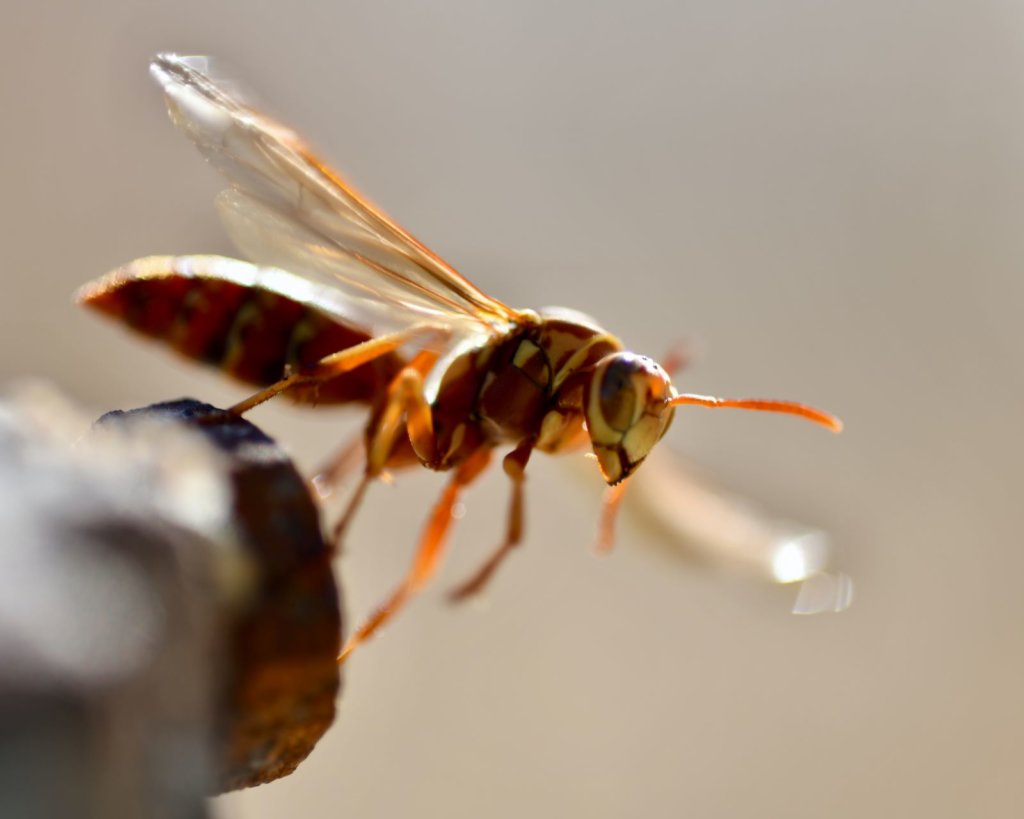
Not *quite* a murder hornet, but it’s a hornet. Photo by Duncan Sanchez on Unsplash
I notice in myself one part of me is terrified of getting COVID-19 because I assume it will be terrible and maybe I’ll kill someone because I’ve spread it to them, and then another part reminds me that may not happen. It could, that’s why I’m being cautious, but the vast majority of people who contract COVID-19 recover. WebMD says the recovery rate is anywhere between 97% and 99.5%. Our bodies for the most part know how to fight this virus. Not without consequences of course because some people have lung damage or brain damage as a result of the virus, according to the BBC. But still, mostly we’ve got this.
Do I think we should throw caution to the wind and return to the way things were pre-pandemic? No, because even if the death rate is 1%, when you take into account the size of the population, that can still be a lot of deaths. The United States is a perfect example of that. My spiritual teacher says, “Those who are reluctant to adapt themselves to the changed circumstances are doomed to destruction.” Yep. Pretty much. We can’t pretend our circumstances have remained the same, and at the same time, we must also recognize that we can, have, and will adapt.
My spiritual teacher also says, “You should always remember that you are in a world of passing shows, moving panorama. No picture, no position, no stance shall remain as they are just at present. That is, everything will change, everything is to undergo changes, and you should be ready to adapt yourself, to adjust yourself with those changed phases.”
My experience from this weekend shows me that we as a society, for the most part, are ready to adapt to changed phases. We adjust our actions and reactions because we as a species seek to survive. If we don’t adapt, we die, like the European honey bees who have no defense against murder hornets. I, for one, am willing to change and I hope you are too.
I dream of a world where we understand we have to adapt to circumstances in order to survive. A world where we realize nothing stays the same and we must constantly adjust accordingly. A world where we trust in our nature to fight against threats and realize adapting is what we do.
Another world is not only possible, it’s probable.
When I thought about what to write today, the answer that came to me was, “Take a break.” I think it’s both a missive and a message, meaning, I need to take a break, but also other people need to take one too. I can’t speak for anyone else, but for myself, I notice right now with so many things happening in the world, so many issues vying for my attention, it feels irresponsible to take a break. That instead I must be firing on all cylinders all day every day. I think it’s in part because there’s that pressure in the external world, but also in part because it’s how I’m made.
I am a fire sign. Not just astrologically (I’m a Sagittarius), but also my ayurvedic dosha is pitta. I want to do all the time. Resting is the complete antithesis of my natural tendencies but it has become clear to me resting is of the utmost importance.
Back in 2013, I was reading Christine Arylo’s Madly in Love with ME and she advised every morning putting your hand on your heart and asking, “What do I need today?” or “What do I need to receive today?” Today anyway, the answer is “take a break.” She also advises conducting an energy check-in to gauge how full your energy tank is. My energy level today is a 10. Christine says don’t give of yourself unless your energy tank is at 75-100.
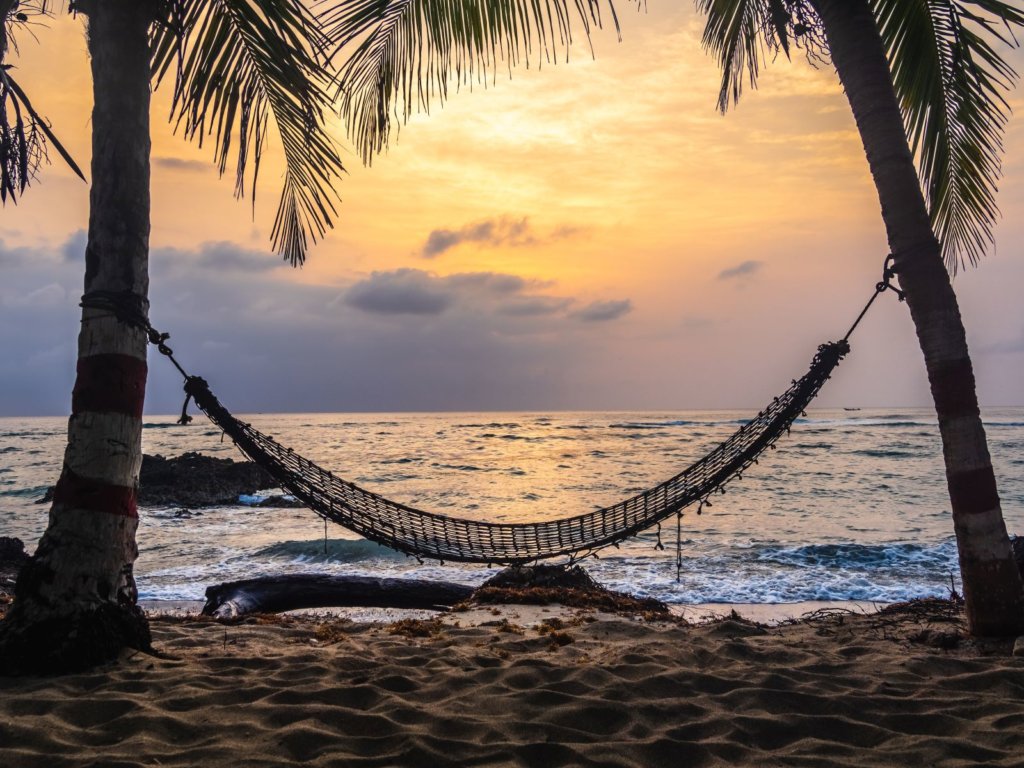
One of these sounds great right now. Photo by Urip Dunker on Unsplash
I’ve gotten better at it over the years, but there’s still a part of me that pushes myself to do everything, anything. As soon as my energy tank gets even a little full, I empty it completely. That’s not something I want for myself. I want to be full of energy. I want to break free of all the mental prisons I’ve constructed for myself. I want liberation from the darkness and I want my magnificence to shine brightly.
I’m reminded of the butterfly here and how I, too, want to flit from place to place, soar high in the sky, and dance with other butterflies. However, in order to become a butterfly, I need to cocoon sometimes because unlike the butterfly, transformation is not a one-time thing for me. I feel like I’m constantly transforming, which would make sense given all the fire energy in my being because if you watch a fire, it’s constantly changing. And fires if they’re not tended to also reach a point where they burn out.
I need to shore up my energy, allow myself time to rest, to say no to things that drain me. I need to focus on myself so that I can become a butterfly. So I can help other people. So I can be of service. So I can live the bright and exciting life I’ve always dreamed of. It’s incredibly difficult for me to cocoon, to withdraw my energy from the world, to concentrate on me and only me. It feels wrong and selfish and uncomfortable. If I don’t do this, however, I’m going to remain a caterpillar and I don’t want to do that.
I’m writing this blogpost because I’m sure there are other people out there like me who are running themselves ragged, especially right now when the tools that used to be available to us are either nonexistent or severely limited. Regardless of what’s happening in the world, we deserve to rest because we are not machines (and even machines aren’t running all the time). We deserve to receive as much as we give. We deserve to take time out. Sometimes we need to cocoon so we can serve the world in an even bigger way.
I dream of a world where we all take a break when we need it. A world where we balance giving and receiving. A world where we love ourselves so much, we treat ourselves with care. A world where we know in order to turn into a butterfly we have to go into a cocoon.
Another world is not only possible, it’s probable.
I didn’t think I was going to write about this today but the topic has been at the forefront of my mind so here we are. Perhaps a little naïvely, I thought after my sleep got sorted the rest of my health would fall into place like dominoes lining up with one another. While it’s true being able to sleep well has made a huge difference in how I feel every day and how much energy I have, it hasn’t affected what’s going on with my digestion.
I notice even saying that my stomach tightens a little. I have some shame about my health conditions like they’re my fault, that I’m to blame. I define shame as the feeling on a fundamental level that there’s something wrong with me, whereas guilt is the feeling I did something wrong. That means when it comes to my health, a part of me thinks I’m messed up, there’s nothing I can do about it, and it’s all my fault.
When I mentioned this to my therapist he said, “Wait, so you don’t think that anyone who experienced your particular life circumstances and conditions would have the same problems?” Hearing that kicked some things loose and reminded me the body responds to stimuli. And furthermore that the trauma I’ve experienced in my life is always running in the background because it’s stored in the central nervous system. We used to think trauma was stored in the brain as a memory, but the latest research shows trauma is stored in the body. You might have heard of the book The Body Keeps the Score, which is all about this.
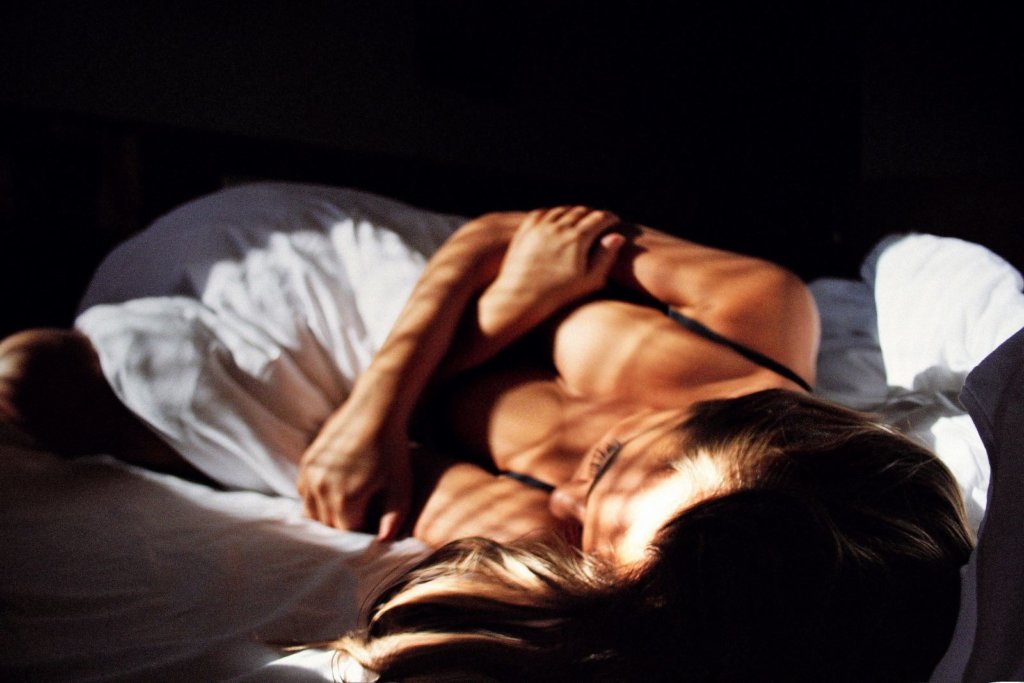
The body is not a machine as much as we like to pretend otherwise. Photo by Daria Litvinova on Unsplash
When it comes to my own trauma, I want to minimize it or brush it aside because it’s not as bad as someone else’s. I’m very aware of my own privilege and that means I compare myself to others and know my life could be vastly more difficult. Because I don’t have XYZ trauma, it means I operate as if the trauma I did experience doesn’t matter. Ouch. I am crying as I express that. The reality is, trauma is trauma. Pushing it away or minimizing it doesn’t solve anything.
I’ve cried off and on this past weekend as I’ve gotten in touch with how much the events of my life have affected me, and specifically my physical health. I’ve spent so much time in survival mode, putting one foot in front of the other, that I haven’t absorbed the impact of trauma specifically on my body. It happened in the past so it doesn’t matter, right? Wrong. Because trauma is alive in the body. It’s alive in my body. It’s manifesting itself in my digestive system which is in charge of what? Processing. I haven’t fully processed all the traumatic events in my life so it makes sense the part of my body that’s in charge of processing would also be affected.
In his book The Body Keeps the Score, Dr. Bessel van der Kolk said, “As long as you keep secrets and suppress information, you are fundamentally at war with yourself…The critical issue is allowing yourself to know what you know. That takes an enormous amount of courage.”
What I’m knowing right now, what I’m sharing right now, is the trauma I’ve experienced has affected me. It’s left a mark on my body. No amount of comparing myself to other people, to minimizing what I’ve gone through, or brushing it aside will change my past. Just as it was naïve to think getting good sleep would solve all my problems, it’s also naïve to think enduring traumatic events would leave me unscathed not only psychologically but also physically. As Dr. van der Kolk and many others have said, awareness is the first step in moving toward a solution. This is me, deepening my awareness.
I dream of a world where we remember the body and mind are linked. A world where we understand trauma lives in the body and it’s important to take that into account where our health is concerned. A world where we treat not only other people with love and care, but also ourselves.
Another world is not only possible, it’s probable.
The other week I saw a comment on a friend’s Facebook post that said certain people in the U.S. have a victim mentality and there are plenty of opportunities and resources to get ahead if they wanted. The comment has stuck with me like a burr in wool. I went to reply to the post and of course now I can’t find it so instead I’m writing a blogpost about it.
There’s a difference between a victim mentality and actually being a victim. For instance, in Pennsylvania, two separate studies found holding poverty as a constant, the Whiter the school district, the higher the funding. On average, the Whitest districts received thousands of dollars more than their fair share for each student, while the least White districts received thousands less for each student. Is that a “victim mentality” or actually being a victim?
In another example, four mothers are suing Jackson, Mississippi, because the school their kids attended lacked textbooks, basic supplies, experienced teachers, tutoring programs, after-school literary programs, and even toilet paper! Would you tell those children they should pull themselves up by their bootstraps and work even harder? Or maybe you’d advise a different approach and say those parents should have transferred their kids to another school, to do whatever it takes to give their kids a good education. A better question I think is why should the parents have to transfer their kids? What ever happened to the promise made to us by the state to provide a uniform system of free public schools?
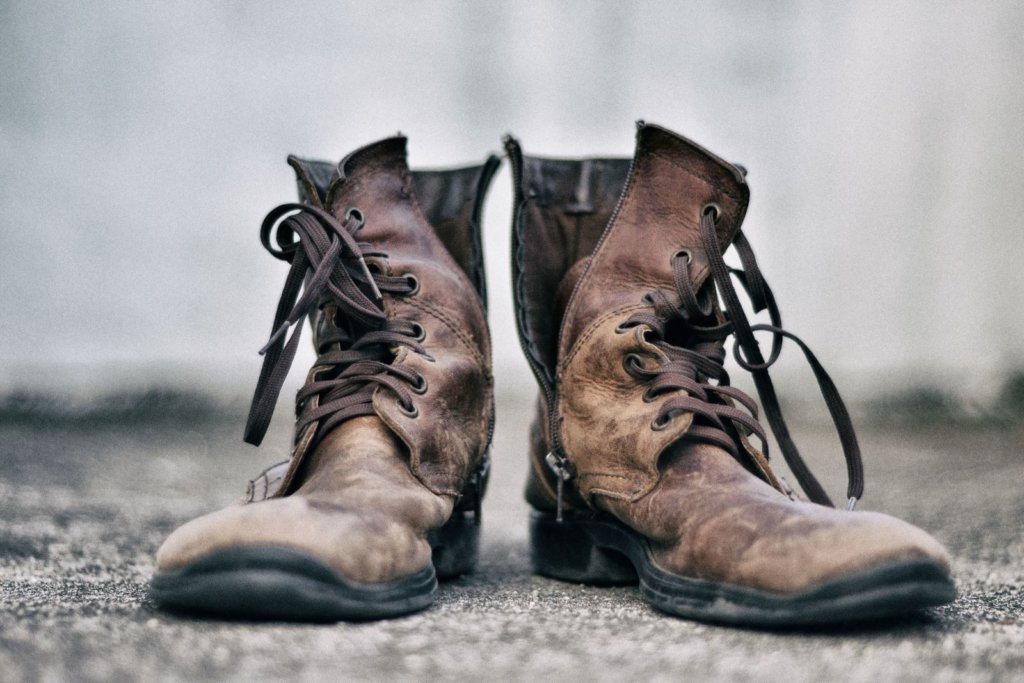
This picture makes sense if you think about the title of this post. Photo by Oziel Gómez on Unsplash
At this point some people may start talking about Darwin and survival of the fittest. How we’re playing out something inherent to human beings and our evolution. “Survival of the fittest” is an outdated idea that’s used to support callousness. The reality is we don’t live in a society where survival of the fittest operates. We have healthcare, we put curb cuts onto sidewalks to allow for wheelchair users and strollers, we have unemployment assistance. For the roughly 30 million Americans who are unemployed are we saying too bad, so sad but figure it out on your own? No. Because human beings are more compassionate than they are callous. We are more cooperative than competitive.
In fact, in 1965 when six Tongan boys were shipwrecked for 15 months they didn’t reenact Lord of the Flies – they worked together to help each other survive. That’s what human beings do. My spiritual teacher takes it a step further and says it’s our responsibility to take care of one another.
“You should always be vigilant that not a single individual of our collective body is in the least neglected or ignored,” he said. “Let not a single boy or girl feel within them that no one is concerned about them – let not a single person be allowed to think, ‘No one cares whether I have taken food or not.’ You must pay special heed to this. Particularly those of you who are in responsible positions of leadership should remember that … [Y]ou should always be concerned with others necessities, not your own. You should always think more about your duties and responsibilities than about your rights.”
Those are some strong words. I think there’s a balance because living in the society that we do, not everyone has this service mindset so it is important that I think of my own necessities otherwise I could go hungry. However, can you imagine what life would be like if we lived this way? If we felt responsible for other people in a non-codependent way? Sounds idyllic to me and exactly the sort of world I want to live in.
I dream of a world where we are concerned with others, not only ourselves. A world where every person feels cared for. A world where we feel responsible for each other. A world where every person is allowed to thrive because the collective supports them in doing so.
Another world is not only possible, it’s probable.
I’ve written before about how Donald Trump represents our collective shadow in terms of racism and xenophobia, but he also represents the shadow side of the internet. His latest move withdrawing from the World Health Organization (WHO) is like unfriending someone on Facebook because you don’t like what they’re saying.
First off, I want to say I think the “unfriend,” “block,” and “mute” features on social media are important and necessary because no one should be subjected to abuse, but also there can be an element of using those features to create confirmation bias or insularity. These days you don’t have to listen to anyone who disagrees with you. You can ignore what other people say with relative ease. I notice this in my own life – whenever I post about Black Lives Matter on my professional Instagram account, I lose followers. That’s OK, I’ll keep posting about it, but it speaks to the shadow side of the internet.
We get to intentionally create our reality, our communities, and connect with like-minded individuals, which is great! But it can also lead to a disconnect from reality. If I only surround myself with people who think the Earth is flat, of course that will be what I believe. The statistics vary, but anywhere from 2% to more than 20% of people believe the Earth is flat! Even if it’s 2%, that’s a huge swathe of people. The notion continues to gain momentum because it has support from numerous Facebook groups and Youtube channels. The way we human beings determine what’s real is by consensus, by checking in with others. “Did you see that UFO zipping across the sky? No? Well I must have imagined it then.”
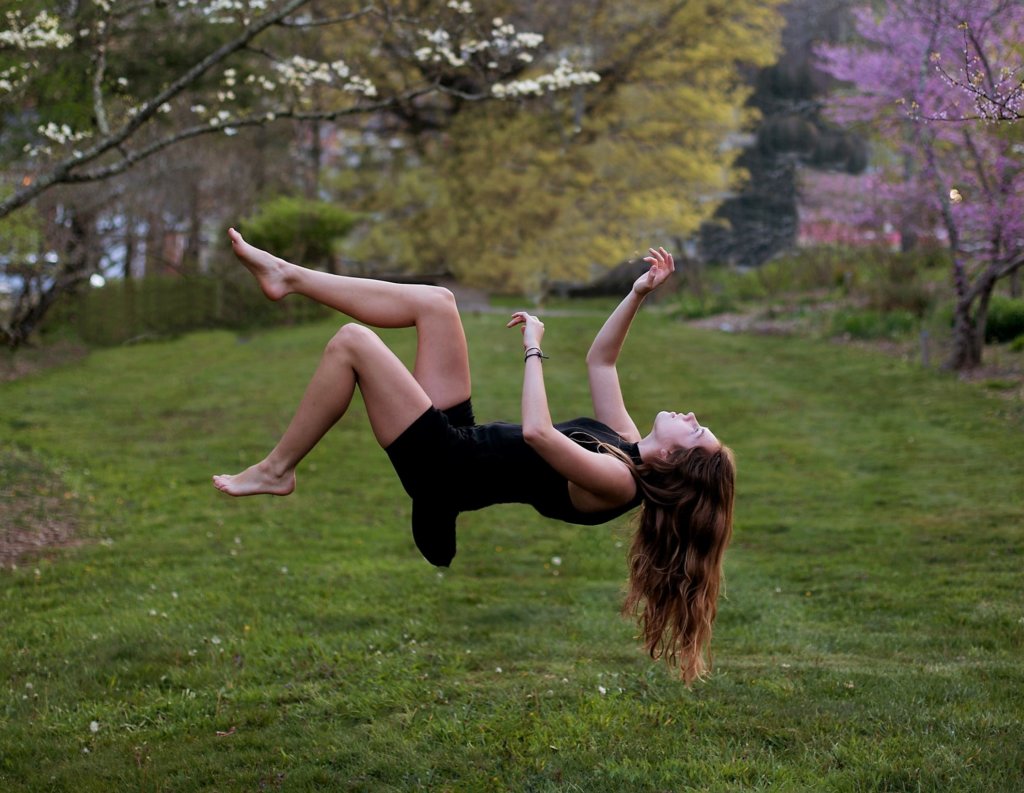
Is she actually floating?!? Photo by Ashley Bean on Unsplash
Because of the internet, we can find people who support our version of reality and that’s what Donald Trump does. How ironic that a “reality” TV star has no sense of consensus reality. He’s so used to creating the truth and now he gets to broadcast his reality to the world. He speaks to the seductive idea that the truth can be whatever you want it to be. It can feel empowering to say, “My truth is my truth” and ignore what other people say, especially if a person has experience with not being heard or believed. However, I’m going to quote Stephen Dinan, CEO and founder of The Shift Network, an alternative media company. He writes:
“The good aspect of claiming our own internal truth and authority – which human potential teachings typically promote – turns ugly and becomes a descent into ignorance when people stop respecting the hard-earned disciplines behind so many mainstream endeavors from science to journalism to medicine. Once we stop respecting expertise and the disciplines that inform that expertise, we put ourselves on a path to ignorance.
Precisely. When we tune out all other voices, we become ignorant. It’s what Donald Trump is advocating by withdrawing from the WHO. It’s what he’s advocating when he says people should stop getting tested for COVID-19. Because if you stop getting tested that means you don’t actually have the virus, right? Well, no. It just means that you can pretend everything is fine and delude yourself.
I can tie this in to my spiritual practice because on the one hand, my spiritual teacher advocates for self-realization, for developing intuition and connection to spirit so the internal reality is important. But on the other hand, he also urges us to have discernment, to use our brains when we’re in the world and reject what is irrational. In fact, he says, “Even if a young boy says something logical, it should be accepted. And if the Supreme Creator Brahma says something illogical, it should be rejected as rubbish.”
I dream of a world where we use our brains. A world where we understand our own version of reality is not the only version. A world where we realize it’s important to look at multiple perspectives and take into account what other people are saying. A world where we accept what is logical and reject what is not.
Another world is not only possible, it’s probable.
I’ve been thinking a lot about freedom because of the July 4th holiday. I’ve been wondering, what does it mean to be free in today’s world when many people are not allowed to live their lives? When they are shot for running down a street? When they are killed in their beds? I’m referencing publicized murders of Black people in the United States of course, but I could also start listing crimes against indigenous people, people of color, those in the LGBTQIA community, Jews, Muslims, and many others. But what’s interesting about this time we’re living in is there’s an added layer about freedom for all of us.
I’m sure you’ve noticed we’re still experiencing a pandemic and many people, regardless of how they identify, are quarantining. A large swathe of us are unable to live our lives the way we used to before COVID-19 struck. Many of us are exclusively working from home. We can’t get our hair cut or work out at the gym. We can’t celebrate together in large groups. We can’t even hug our friends. So again, I ask, what does it mean to be free? I keep thinking about an expression I’ve heard: prison is a state of mind. Surely that’s not true, is it?
I’d like to reference writer Rayya Elias who was incarcerated at Riker’s Island for drug dealing and possession. After she was clean and sober, she wrote a memoir, Harley Loco, and she was invited to speak at the opening ceremony of the prison’s library. Various people filled the audience, including current prison inmates. Elias spoke to the incarcerated women directly and told them this is not who you are, a prisoner in a jumpsuit, and this is not where you live, Riker’s Island.
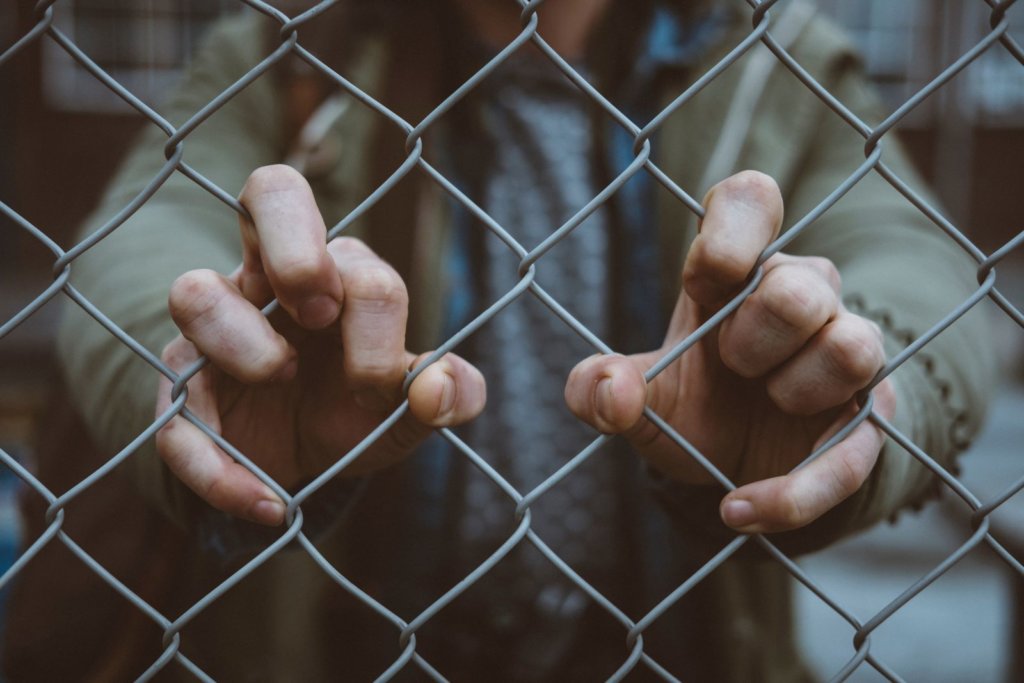
Photo by Mitchel Lensink on Unsplash
Pointing to her heart she said, “This is who you are.” Pointing to her head she said, “And this is where you live.” She reminded them that would always be true – they would always be the people they are in their hearts and they would always live inside their minds. Her statements have stuck with me because she’s right, we do live in our minds and so perhaps that’s where freedom lies as well. Please don’t misunderstand, I’m not saying we should sit back and do nothing about all the injustice going on in the world because we all just live in our heads. What I’m advocating is a three-pronged approach: free our bodies, free our minds, and free our spirits.
A way that I know of to free the mind is to practice meditation. Doing so can free the mind so that a person feels content even while physically imprisoned. That’s not conjecture, by the way. My spiritual teacher modeled that for me. He was jailed and fasted on two cups of liquid for more than five years, but he was still as content as could be. He was an extraordinary human being but he was still a human being. That means he has demonstrated for all of us what is possible. He has shown us that no matter where we are, no matter our circumstances, we can still feel free.
My teacher said practicing santośa, or contentment, will cultivate that feeling. When discussing the intuitional practice of meditation, he said santośa is contentment with receiving things we did not ask for, which to me sounds like freedom.
I dream of a world where we work to free ourselves in body, mind, and spirit. A world where we work to improve the lives of ourselves and others. A world where we remember we live inside our heads. A world where we understand what freedom really means.
Another world is not only possible, it’s probable.
I have a tendency to idealize people, especially leaders. Not government officials because their peccadilloes are well documented, but other leaders like Gandhi and Dr. Martin Luther King, Jr. However, everyone has their flaws. Gandhi was a racist and had some weird, perhaps even abusive, sexual behaviors. Dr. King cheated on his wife. Did both of these men contribute to society and deserve recognition for that? Absolutely. But were they perfect? No.
That’s quite common actually for revolutionaries. I’m going to quote Rutger Bregman from a super-long article in The Correspondent. He read a book by British journalist Helen Lewis called Difficult Women that chronicles the history of feminism in Great Britain. In the book she makes the point many revolutionaries are difficult. Progress tends to start with people who are obstinate, obnoxious, and deliberately rock the boat. Also, doing good work in the world doesn’t mean a person is perfect.
Bregman writes: “Lewis’s criticism is that many activists appear to ignore this complexity, and that makes them markedly less effective. Look at Twitter, which is rife with people who seem more interested in judging other tweeters. Yesterday’s hero is toppled tomorrow at the first awkward remark or stain of controversy.”
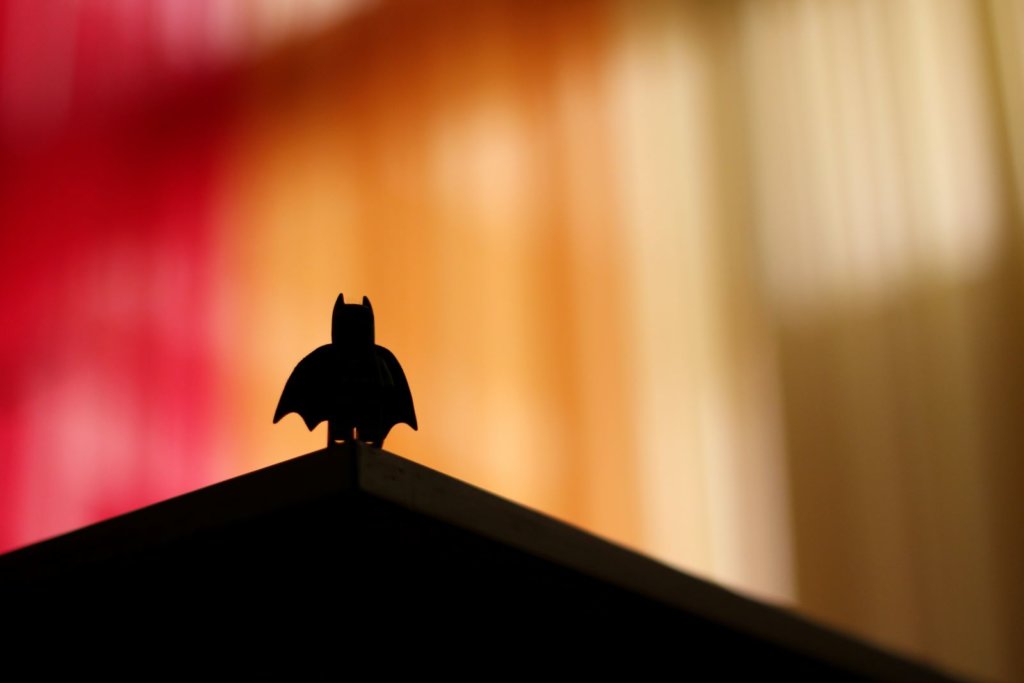
I know it’s a little silly to use a Batman figurine to illustrate this post, but Batman is a human and he’s a hero so. . . Photo by Ali Kokab on Unsplash
I’m reminded you don’t have to be perfect to make great change in the world and in fact, I take heart in that regular people with passion do that all the time. As we’ve recently celebrated Pride, I’d like to mention one such person: Marsha P. Johnson, a Black trans woman, who played a key role in the fight for LGBTQ equality. Three passionate Black women making a difference today are the co-founders of Black Lives Matter: Patrisse Khan-Cullors, Alicia Garza, and Opal Tometi.
You obviously don’t have to be a saint to be a leader, to be a spiritual revolutionary. My teacher says true leaders or spiritual revolutionaries work to achieve progressive changes for human elevation on a well-thought, pre-planned basis, whether in the physical, metaphysical, or spiritual sphere and they follow an ethical code. That ethical code includes things like not intentionally harming others, practicing benevolent truthfulness, not stealing, sacrificing to serve others, etc.
Today I am reminded that you and I can also be leaders in our own right, in our own way. If we are working to elevate humanity and doing our best to be ethical people, we fall into that category. We may never have the notoriety of any of the leaders I mention in this post, but we’re still leaders and the work we’re doing still matters. We need different people playing different roles to create change.
I’m going to end with another quote by Bregman here. He says:
“Our inclination – in talk shows and around dinner tables – is to choose our favorite kind of activism: We give Greta Thunberg a big thumbs up but fume at the road blockades staged by Extinction Rebellion. Or we admire the protesters of Occupy Wall Street but scorn the lobbyists who set out for Davos.
“That’s not how change works. All of these people have roles to play. Both the professor and the anarchist. The networker and the agitator. The provocateur and the peacemaker. The people who write in academic jargon and those who translate it for a wider audience. The people who lobby behind the scenes and those who are dragged away by the riot police.”
I dream of a world where we all work together to make a better society. A world where we recognize we all have the capacity to be leaders. A world where we remember we don’t have to be perfect to make a difference. A world where we see ourselves for the heroes we are.
Another world is not only possible, it’s probable.
(First off, I want to say even though I’m not writing about Black Lives Matter this week doesn’t mean I no longer care or it’s not on my mind. It is. Being a human being means I care about many things all at the same time. In addition to everything going on in the world, things still happen in my personal world, and that’s what I’m writing about today.)
On Saturday, I stuffed cream, cashmere gloves into my jacket pocket in preparation for my trip to the grocery store. I like to wear gloves when I know I’ll be encountering high-touch surfaces because it saves me from washing my hands. About six minutes in to my walk to the store, I noticed the gloves had escaped my pocket. I stopped in my tracks and did an about face, retracing my steps while scouring the sidewalk and the street for my gloves. I found one and kept looking. I walked all the way back home and didn’t find my other glove.
Because I still needed groceries, I turned around again and kept my eyes trained on the ground looking for my glove. Didn’t find it. After leaving the grocery store, I once more swept my eyes left to right, constantly looking for my other glove. If you’re keeping track, that’s three times I searched for my glove to no avail.
When I came home, I took a picture of my glove and uploaded it to Google for a reverse image search, to see if I could purchase the gloves again. Nope. Then I messaged three different people on Etsy to ask if they could make me a match. If that wasn’t enough, later in the evening, just for kicks, I searched the street two more times and came up empty. If it wasn’t obvious, I have trouble letting go. Not only of objects, but also of people and situations. Goodbyes are hard for me.
I try really hard to fix things so I won’t need to feel sad. In this case, if I found my other glove I wouldn’t feel sad or upset because the problem would be solved. I think it’s safe to say my other glove is gone. Tears are pricking my eyes even typing that. I don’t want it to be true but reality is like that. In real life, not everything can be fixed or solved. Even buying a new pair of gloves won’t truly replace the one I lost. A new pair won’t make up for what’s missing. I’m allowed to feel sad about that.
My therapist tells me frequently emotions are like tools and when they show up, use them. When sadness shows up it’s because of a loss. I’ve lost many things in my life and I don’t think I’ve properly grieved them all. I was too busy metaphorically combing the street trying to solve the problem to cry. But here’s the thing about grief – it doesn’t go anywhere. It stays in the body. It may express itself as lung trouble, or pain in the back, or weight gain, or something else, but grief sticks around until it’s felt.
This isn’t a profound post or fiery one or philosophical one. It’s a human one. I’m a human being and when I lose something, I feel sad whether I let myself cry about it or not. What I’m learning is life is easier when I let myself grieve. How much time and trouble could I have saved on Saturday if I had given in to the emotion I felt instead of fighting it? I don’t regret looking for my glove, but now that I know it’s not coming back, it’s time to grieve. Not only for my glove, but for other things too.
I dream of a world where we let ourselves cry when we lose something or someone. A world where we recognize emotions are not meant to be fixed but rather felt. A world where we let ourselves feel our feelings when they come up. A world where we embrace our humanness.
Another world is not only possible, it’s probable.
While watching a movie that addressed publishing the Pentagon Papers, what struck me the most is multiple presidential administrations maintained U.S. involvement in Vietnam because they didn’t want other countries to lose respect for us. Setting aside how screwed up that is, I can’t think of a single country that still has respect for the U.S. OK, maybe Brazil, which also has a fascist leader, but otherwise the pickings are slim. These days Trump doesn’t seem to care one iota what other countries think of the U.S. and instead only cares about appealing to his base: primarily white, Christian men who are racist.
I want to address that term, racist. Robin DiAngelo, author of White Fragility, said, “We have to stop thinking about racism simply as someone who says the N-word.” Meaning it’s possible some Trump supporters (but not only his supporters) are racist but think they aren’t because they don’t use the N-word or they have friends who are people of color. Racism is a system that benefits white people – it’s prejudice plus power. And white people who want to maintain the status quo are supporting racism.
Trump does not fall into the camp of someone who is unaware he’s racist; he’s blatantly so. One only has to look most recently at his decision to hold the now-moved rally in Tulsa on Juneteenth as evidence of that. If you don’t know, Tulsa is the site of one of the worst incidents of racial violence in the nation’s history. In 1921, hundreds of black people were attacked by a white mob that looted and burned many black-owned businesses and homes in the Greenwood District, a neighborhood that was then known as “Black Wall Street.”
Trump’s racism is calculated and it’s precisely why he’s in power. Back in 2017, the Atlantic published an excellent essay by Ta-Nehisi Coates, an excerpt from his book We Were Eight Years in Power. Coates said, “In recent times, whiteness as an overt political tactic has been restrained by a kind of cordiality that held its overt invocation would scare off ‘moderate’ whites. This has proved to be only half true at best. Trump’s legacy will be exposing the patina of decency for what it is and revealing just how much a demagogue can get away with.”
Coates said Donald Trump is the first white president because he “moved racism from the euphemistic and plausibly deniable to the overt and freely claimed.”
It was true in 2017 and it’s still true now. How much can a racist demagogue get away with? Especially when he’s no longer pretending to be a decent man, to care about what other people or other countries think of him? The answer as we’ve seen is quite a lot.
A part of me wants to fast forward to 2021 when I sincerely hope Donald Trump is out of office, but the reality is, what Trump embodies doesn’t go away with a new president. He’s merely a symbol of what’s been here all along. It’s up to us to create a more just society and also to remind elected officials they work for us and not the other way around.
I’m heartened by the current protests because that dynamic is playing out. When the Minneapolis City Council unanimously passed a resolution to replace the police department with a community-led public safety system, it was a signal that public outrage can make a difference.
There is power in the collective, both good and bad. We can either use our collective power to maintain the status quo, to support inequality of all kinds, or we can do something different. We can band together to create a world we’d like to see. I, of course, want that better world.
I dream of a world where we use our collective power to remind the government they work for us. A world where we dismantle racism as well as all other -isms. A world where we win back the respect of other countries because we’re operating with respect. A world where power returns to the hands of the collective, where it belongs.
Another world is not only possible, it’s probable.
I have only told this story to a handful of people but now seems like the right time to share it more broadly. A few weeks ago I wrote a post about being the kind of people we want others to be. I mentioned the peace prayer, which is often mistakenly called the St. Francis prayer. I linked to a couple of stories of ex-KKK members who changed their ways based on relationships with people they used to hate.
After I wrote the post, I started to question the value of what I do, of how I help others. Does it really make a difference that I write a blogpost every week? Am I changing anyone’s life in a deep and profound way by leading a group meditation on Sundays? Would I make more of an impact by befriending someone who is in the KKK and supporting their exit from the Klan?
Literally within a few hours of thinking those thoughts I was zoombombed by neo-Nazis at the group meditation I lead. They started scribbling swastikas over my screen. They asked how many Jews we’ve killed and did whatever they could to disrupt the meeting before my co-moderator and I ejected them. (Since then we’ve tightened security measures at the meeting to keep incidents like that from happening again.)
After I calmed down, I started to laugh. It was as if the universe said to me, “Really? Are you sure you want to befriend neo-Nazis? Are you sure the form of service you provide isn’t worthwhile?” The universe answered my question very quickly and validated for me, yes, this is what my gifts are, and yes, they are needed.
I bring this up because I’ve had conversations with several people – both white and black – who have lots of feelings about not being on the streets protesting the treatment of black and brown people. There’s a feeling they “should” be and maybe some guilt that they aren’t. I get it because I feel that way too. I want to support black, brown, and indigenous people. I want them to know I’m not OK with how they are treated and protesting is one way to demonstrate that. However, my nervous system cannot handle large crowds. I start to panic when I’m in large groups which is why I never attend concerts or sports games at large stadiums. Even going to a shopping mall wipes me out.
Yesterday I went to a small protest near my house but there is no way I can be in a throng of people. When I think about my zoombombing experience, I realize that’s OK. Everyone has different gifts and different abilities. We are all special in our own way and however we’re choosing to show up in the world is valid. A symphony orchestra requires numerous instruments to create beautiful music. Humanity is like that symphony – we can’t all be the cello.
In fact, my spiritual teacher says, “[D]iversity is the order of providence. One must remember that identicality is disowned by nature – nature will not support identicality … diversity is the law of nature and identicality can never be. But diversity is not the same as disparity. Disparity encourages exploitation based on differences, while diversity recognizes multiplicity which reflects underlying unity.”
I dream of a world where we recognize we’re not meant to all do the same thing. A world where we realize we are like the instruments of a symphony orchestra – each part is important, beautiful, and adds to the whole. A world where we cherish how we personally contribute to society. A world where we recognize we are made to be different.
Another world is not only possible, it’s probable.
